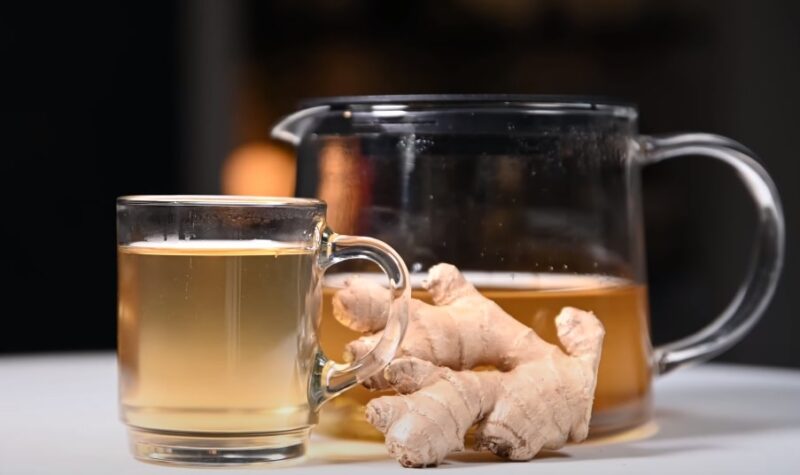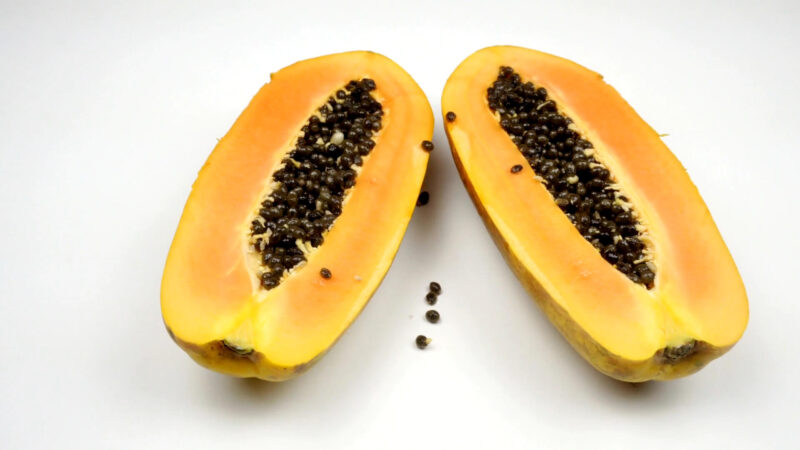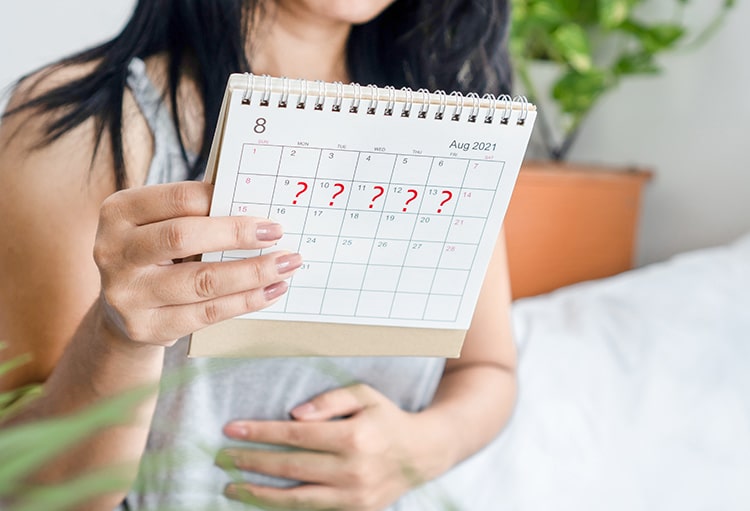Menstrual cycles vary significantly among women, typically lasting between 28 to 35 days. Irregularities in this cycle, such as delayed periods, can stem from various factors including stress, hormonal imbalances, lifestyle changes, and medical conditions like polycystic ovarian syndrome (PCOS).
Understanding these irregularities and addressing them through natural means can offer relief and promote a balanced, healthier menstrual cycle. Here are 20 natural cures that can help you.
Key Takeaways
- Ginger tea, unripe papaya, jaggery, turmeric, aloe vera, apple cider vinegar, cinnamon, beetroot, a healthy diet, and exercise including yoga are natural remedies for regulating menstrual cycles and alleviating related discomforts.
1. Ginger Tea

Ginger, known for its anti-inflammatory properties, can be a potent remedy for regulating menstrual cycles. Consuming ginger tea regularly may help stimulate menstrual flow and alleviate pain associated with delayed periods.
The gingerol component in ginger also aids in relieving digestive issues and nausea that can accompany menstrual discomfort. Research suggests that ginger may lower the levels of prostaglandins, compounds involved in pain and inflammation, thus easing period pain.
For best results, drinking two to three cups of ginger tea starting a few days before the expected period date can prove effective.
2. Unripe Papaya

The carotene present in unripe papaya acts as a stimulant of the estrogen hormone, facilitating regular menstrual flow. It’s recommended to consume unripe papaya juice regularly, except during menstrual periods, to help regulate the cycle.
The enzyme papain in unripe papaya helps in contracting uterine muscles, which can induce periods in women experiencing delayed cycles. Additionally, unripe papaya is rich in nutrients and vitamins that support overall reproductive health.
It’s important to note that pregnant women should avoid consuming unripe papaya due to its potential to induce contractions.
3. Jaggery

Incorporating jaggery into your diet can aid in regulating menstrual cycles due to its warming effects, which promote hormone regulation and reduce menstrual pain. Jaggery is also rich in iron, which can help prevent anemia, a common issue in women with irregular periods.
The natural sweetness of jaggery makes it a healthier alternative to refined sugar, which is linked to hormonal imbalance. Consuming a small piece of jaggery daily can also improve digestion, further supporting hormonal health and menstrual regularity.
4. Turmeric

Turmeric, with its anti-inflammatory and warming properties, can help balance hormones and regulate menstrual cycles. Consuming turmeric with milk or water can be beneficial for inducing periods. The active compound in turmeric, curcumin, has been shown to support liver health, which is crucial for hormone regulation.
Turmeric also acts as a natural pain reliever, making it effective in easing menstrual cramps. Adding a pinch of turmeric to daily meals or drinking a turmeric latte can provide these health benefits.
5. Aloe Vera
Aloe Vera juice can regulate hormones and promote regular menstrual cycles. However, it’s advised not to consume Aloe Vera during periods due to its emmenagogic effects. The vitamins and minerals in Aloe Vera support the body’s natural detox processes, enhancing overall reproductive health.
Regular consumption can also help in reducing menstrual cramps and bloating. It’s important to consume Aloe Vera juice in moderation, as excessive intake can have laxative effects.
6. Apple Cider Vinegar (ACV)

ACV can help regulate periods and reduce symptoms of PCOS. Mixing it with water or honey can make it more palatable and enhance its effectiveness. The acetic acid in ACV helps in controlling blood sugar levels, which is crucial for hormonal balance.
ACV also supports weight loss, which can be beneficial for women with PCOS trying to regulate their menstrual cycle. Drinking a diluted mixture of ACV in the morning can kickstart metabolism and promote hormonal health.
7. Cinnamon

Cinnamon, known for its warming properties, can help regulate menstrual cycles and reduce menstrual cramps. Adding cinnamon to your diet or drinks can offer relief from delayed periods. Its anti-inflammatory and antispasmodic properties are effective in easing menstrual pain.
Cinnamon also plays a role in balancing insulin levels, which can impact menstrual regularity. A daily dose of cinnamon tea can be a comforting way to incorporate this spice into your routine.
8. Beetroot

Rich in iron and folic acid, beetroot can help in managing menstrual irregularities and symptoms associated with delayed periods. The high content of iron in beetroot helps in replenishing lost blood during menstruation, preventing anemia.
Beetroot’s detoxifying properties also aid in cleansing the body, supporting hormonal balance. Consuming beetroot juice or adding beetroot to salads can be an effective way to gain these benefits.
9. Healthy Diet
A balanced diet, rich in fruits, vegetables, nuts, and whole grains, can help regulate hormones and maintain a regular menstrual cycle. Avoiding processed foods, sugars, and excessive caffeine can further support hormonal health.
Foods high in omega-3 fatty acids, like fish and flaxseeds, can also reduce menstrual discomfort. Staying hydrated and consuming enough dietary fiber is crucial for maintaining a healthy endocrine system, which governs menstrual regulation.
10. Exercise and Yoga
Regular physical activity, including yoga, can help balance hormones, reduce stress, and promote regular menstrual cycles. Exercise improves blood circulation and helps in reducing menstrual cramps.
Yoga poses like the cobra pose or pigeon pose can specifically target the reproductive organs, enhancing menstrual health. Stress management through exercise and yoga also plays a significant role in regulating the menstrual cycle, as high stress levels can lead to irregularities.
When to Seek Medical Advice?
While natural remedies can be effective for managing delayed periods, it’s crucial to seek medical advice if you experience severe symptoms, such as excessive bleeding, or prolonged periods, or if natural remedies do not bring relief.
A healthcare professional can provide a comprehensive evaluation and recommend appropriate treatment based on the underlying cause of menstrual irregularities.
FAQs
Can drinking ginger tea cause any side effects for some people?
Yes, it can cause side effects in some individuals, such as heartburn, stomach upset, or diarrhea, especially if consumed in large amounts. People with blood disorders, those on blood-thinning medications, or individuals with gallstones should consult a healthcare provider before adding ginger tea to their diet.
Is it safe to consume aloe vera juice if I’m taking medication for hormonal imbalances?
Aloe vera juice can interact with certain medications, including those for hormonal imbalances. Its consumption can alter the effectiveness of the medication due to its detoxifying and laxative properties. It’s important to consult a healthcare provider before incorporating aloe vera juice into your diet if you are on any medication.
How long should I try natural remedies like unripe papaya or cinnamon?
If you’re trying natural remedies to regulate your menstrual cycle, it’s reasonable to give these methods 2-3 months to observe any changes. However, if your periods remain irregular or if you experience significant discomfort, it’s crucial to consult a healthcare provider for a thorough evaluation and personalized advice.
Can apple cider vinegar (ACV) affect birth control effectiveness?
There is no direct evidence to suggest that ACV interferes with the effectiveness of birth control. However, ACV can impact blood sugar levels and hormone balance, so it’s wise to consult with a healthcare provider if you have concerns about any potential interactions with your specific type of birth control.
Final Thoughts
Delayed periods, while common, can disrupt a woman’s life and lead to stress and anxiety. On the bright side, nature offers a plethora of remedies that can help regulate the menstrual cycle and alleviate discomfort. From ginger tea to a balanced diet and regular exercise, these remedies can help you regulate your periods.
